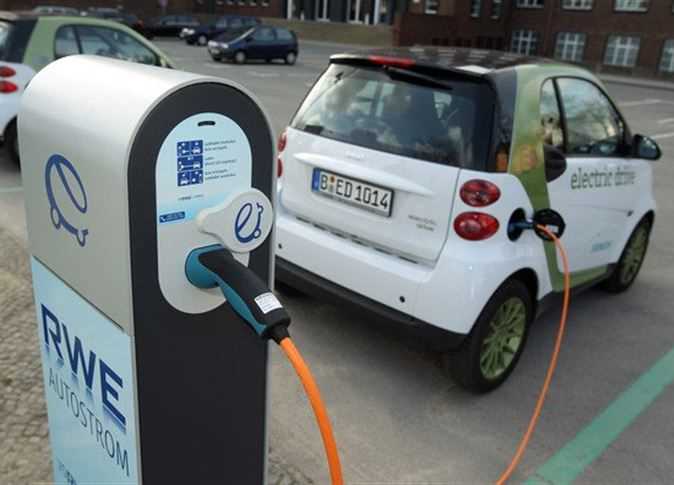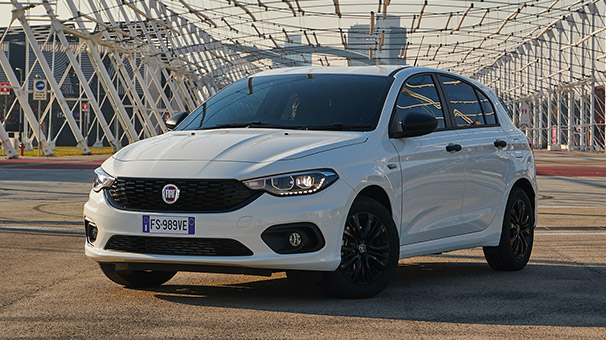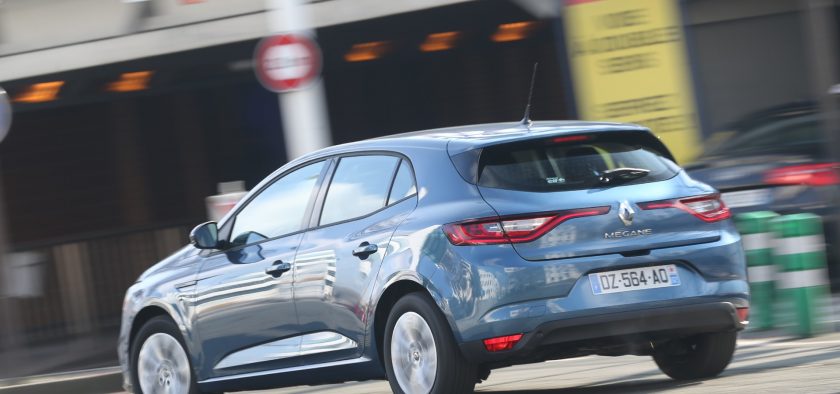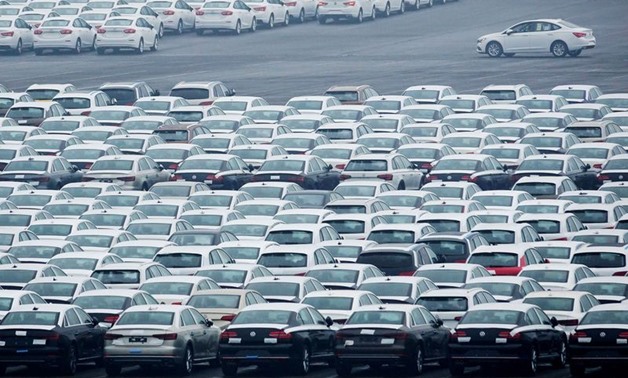CAIRO - 12 March 2020: What is going on in the Egyptian automotive market? This is a common question amongst whoever is interested in this market, given the announcement of relevant agreements and the changes in the exchange rate of the Egyptian pound against the U.S. dollar.
By the beginning of 2019, Egypt applied zero tariffs on cars from the European Union, an action that almost resolved the competition in Egypt in favor of European cars.
Later in 2019, an agreement was signed with China to jointly manufacture 2,000 buses over four years. The percentage of the Egyptian component in the deal is 45%, to be followed by the next stages of joint manufacturing of other types of electric cars. Various international missions have visited Egypt recently to discuss car assembly in the country, and potential cooperation has been announced.

Adding more dynamism to the scene, it was highlighted that as of 2020, cars assembled in Turkey will be exempted from customs in accordance with an older agreement establishing a free trade zone between the two countries.
All these factors made the Egyptian automotive market unpredictable, rendering the Egyptian buyer unsure whether to buy a new car or wait in hopes that better cars or better prices will be introduced.
Subsequently, the prices of about 10 models of Italian, Japanese, Korean and American brands were reduced despite not enjoying customs exemption, but the reaction is an attempt to maintain competitiveness and drain the 2019 inventory.
To help readers make a decision, Egypt Today Egypt reviews actions and movements
taking place in the market, as well as the opinions of experts and officials.
Egypt-Turkey Agreement
In December 2005, Egypt concluded the Free Trade Zone agreement with Turkey, which was enforced in January 2007. Since then, the two parties have been committed to partially reducing tariffs on annual basis until full exemption
in 2020.
The Customs Authority issued publication of agreement No. 1 of 2020, in accordance with the Free Trade Zone Agreement between Egypt and the International Federation of Technical Analysts (IFTA), and the agreement to establish a free trade zone between Egypt and Turkey, both members of IFTA.
IFTA is an international non-profit organization that was incorporated in 1986 with members of 22 countries.
According to the publication, the free trade zone between Egypt and the IFTA countries began in 2020. Category (D) products, namely cars, now enjoy a 100-percent reduction of customs instead of 90 the year before.
Similarly, the publication entailed the free trade zone between Egypt and Turkey, whereby the products in Category (4), including cars, are imported with 100 percent customs reduction instead of 90 percent.
Egypt imports cars of Japanese brands from Turkey, notably Toyota Corolla and Honda
Civic, and Italian cars such as Fiat Tipo, and French ones such as Renault Megane.

“The prices of some of the car brands in the Egyptian-Turkish agreement dropped by six percent compared to their prices before the full exemption,” head of Car Dealers Association Osama Abul Majd said.
Abul Majd clarified that prices of most car types in the Egyptian market have witnessed a decrease since the beginning of the year, indicating that the prices of some types decreased by three percent.
Zero Tariffs on cars from the European Union (GATT Agreement)
The General Agreement on Tariffs and Trade (GATT) was signed between numerous countries to enhance international trade by reducing trade barriers such as tariffs or quotas. In 1995, Egypt began negotiations with the European Union for a partnership agreement. The agreement was initialed on January 26, 2001 in preparation for its final signing on June 25. After parliaments of the member states ratified the agreement, it entered into force in mid-2004.
The agreement stipulates establishing a free trade area in the span of a transitional period of 12 years from the date of enforcement. It also liberalizes the Egyptian imports of industrial goods with European origins for up to 16 years. The Egyptian-European Trade Agreement covered industrial goods, agricultural commodities and manufactured agricultural products. Cars came in the fourth list of industrial goods imported from the European Union. Regarding cars, Egypt started implementing the trade cooperation agreement with the European Union in 2010, so European car customs began to decline gradually. Egypt used the right to postpone the reduction twice in previous years, and by the inception of 2019, customs were reduced to hit 0 percent for all cars of all engine capacities coming from the EU. Among these are Mercedes, BMW, Audi, Volvo, Peugeot, Renault, French-origin Citroen, Fiat and Siat.
Electric Cars in Egypt
The National Authority for Military Production signed on October 1, 2019 a MoU with Scottish energy company SSE and Marathon International Ltd. to build a factory in Egypt that manufactures electric vehicle charging stations and recycles vehicle batteries.
The move comes within the state’s plan to give up fuel vehicles in the public transportation fleet and introduce electric ones. The Ministry of Military Production had signed earlier in April an agreement with Chinese company Foton Motor to produce 2,000 electric buses over four years at the Egyptian military owned Tank Production and Repair Company (Factory 200).
Previously, Chairman of Factory 200 Yosry al-Nemr revealed that entering the sector of electric vehicle manufacturing in Egypt was launched with city buses to be followed by travel buses, private buses, minibuses, taxis and cars, respectively.
Nemr said his establishment has taken the first steps to accomplish the strategy devised to further the local manufacturing of electric vehicles. During President Abdel Fatah al-Sisi’s visit to China to attend the Belt and the Road Summit in April 2019, a deal was closed with Foton Motors to build a plant for manufacturing electric vehicles and producing city buses.
In September of the same year, the ministry signed a MoU with Chinese automotive company Geely to produce electric cars immediately.
The Belt and Road Initiative was launched by the Chinese government to enhance trade, investments, and infrastructure in more than 150 countries in Asia, Europe, the Middle East, Africa, and Latin America. The initiative is a revival to what was known as the “Silk Road,” a vast group of routes where lucrative trade was held in ancient times and up until the 18th century.
The ministry also celebrated a new project to manufacture electric buses in the country in partnership with China’s Foton Motor in 2019. Most importantly, Minister of Military Production Mohamed al-Assar said by the end of October that the ministry would produce electric mini-cars in coordination with Egyptian company International Marathon United Technology (IMUT).
The ministry said the new mini-cars, dubbed E-Motion, would be affordable but would only be allowed to be driven in resorts and com-pounds. The versions of the mini-cars that will be permitted on public streets would be announced later.
In a step forward, Minister of Electricity and Renewable Energy Mohamed Shaker con-firmed that the ministry has assigned a task force to set a plan determining the future locations of electric vehicle charging centers.
The minister told Business Today Egypt earlier that the ministry had embarked on a scientific study to pinpoint the energy needs of electric cars owned by different users. Shaker pointed out that the ministry is keen on providing a service that facilitates the process of charging electric cars.
In December 2019, Cairo launched a trial operation of its first electric bus in a prelude to deploy more buses into service at the public transport sector, along with natural-gas powered buses in the large governorate.
The Public Transport Authority in Cairo received 20 new natural-gas-powered buses, one year after the buses of the first batch of 10 bus-es came into service. Thus far, 30 buses out of a planned 121 are transporting Egyptians. According to an official announcement.
Egypt already has 130 charging stations across the country, all operated by a couple of private companies.
Factors Determining the Final Selling Price of Cars
There are several factors that determine the final sale of car prices in Egypt after lifting customs tariffs on European and Turkish cars such as:
The dollar rate: Head of Egyptian Auto-mobile Manufacturers Association (EAMA) Khaled Saad Amin said the main factor that affects the prices of cars is the exchange rate of the dollar. The exchange rate is around the average of LE 15.75 for buying and LE 15.85 for selling.
Amin added that the tariff cut on cars from Turkey will have limited impact because only a few of them have been imported, pointing out that other factors determining car pricing in Egypt include customs, taxes, fuel prices, and interest rates on cars.

Schedule taxes: It is a tax imposed in special rates or at specified values on the sale or importation of local or imported goods and services provided in the schedules accompanying the VAT Act. This tax is levied on the sale, performance or importation of the goods and services provided in the schedules of the law and up to 24%.
Development fees: The latest amendments to Law No. 147 of 1984 concerning the imposition of a fee on certain products for the purpose of developing the state’s financial resources. The amount of the fee on imported cars depends on their value, in addition to the customs tax, if any, and VAT and other marginal taxes and fees.
Agents’ profit margins: This margin has no rules or constants to govern it because it is subject to supply and demand in the local market, and is thus a relative factor determined by the agent alone.
This particular factor was the reason behind the “Let it Rust” campaign, which is a social-media campaign protesting high car prices. The widespread campaign emerged after customers had an idea about the margin profit of selling cars and deemed it too high. The campaign went viral in January of 2019 as consumers continued to wait for a decrease in auto-motive prices following the full elimination of customs tariffs on European cars.
Sales of Cars
Regarding sales of cars in the Egyptian market, Abul Majd clarified that the decline in sales witnessed in January and February is generally normal general and that regression occurs during these months.
The head of Car Dealers Association explained that this regression leads to the need for companies and exhibitions to compete and provide offers to the consumer to increase sales during that period.
Abul Majd advised those wishing to buy cars to take advantage of that period, as there are offers and inducements to seize, although it is possible that they end with the return of car sales again, and therefore prices can rise.
He pointed out that car prices are also affected by three main determinants: First, the agreements signed between countries regarding customs reduction or exemption; second, the exchange rate against the dollar; and third, the competitive prices offered by companies.
“So, the decline in car prices in Egypt came after several agreements were signed with the European Union and Turkey and also the decline in the price of the dollar to less than LE 16, compared to LE 18-19 last year,” he continued.
Following the decline in the prices of Turkish and European cars, companies that were not included in these agreements will seek to reduce their prices in order to be able to compete in the market, according to Abul Majd.
On the decline of other brands’ prices, general manager of Audi in Egypt, Joseph Daniel, said in a press statement that the drop-in prices come as a result of the decline in the dollar price, as well as the entry of new cars to the list of models exempt from customs duties.
Moreover, head of East Anglian Motor Auctions (EAMA) said that car companies are working to provide discounts in the Egyptian market amid the fierce competition at this time, as well as to be in a better position owing to the naturally declining sale rates at the beginning of each year.
Car sales in the first 10 months of 2019 decreased by 4.9% manifested in 143,519 units, down from 150,016 during the same period of 2018, according to data issued by the Automotive Market Information Council (AMIC).




Comments
Leave a Comment